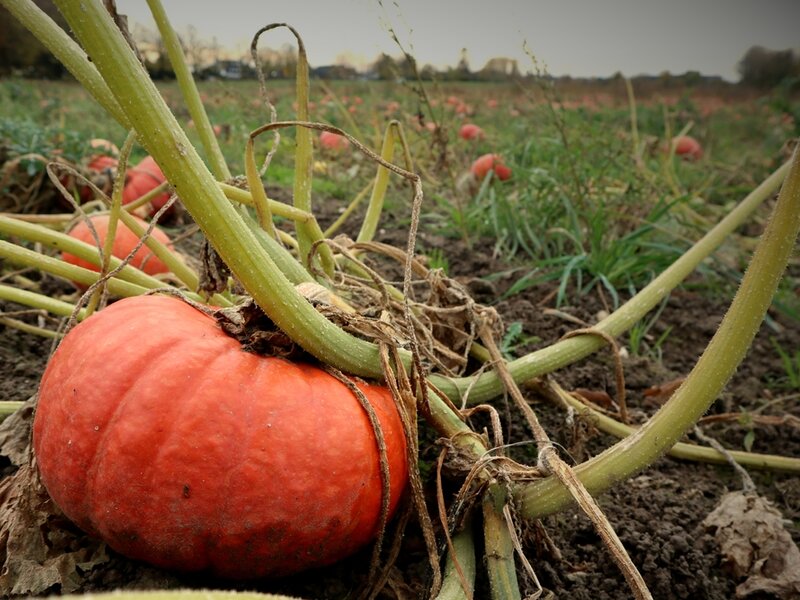- This topic is empty.
- AuthorPosts
- Febuari 5, 2025 at 2:02 um #553538

Squash, a versatile and popular crop, is grown worldwide for its edible fruits, but its cultivation comes with several challenges.
While it thrives in warm climates and can be relatively easy to grow in the right conditions, farmers often face numerous obstacles throughout the growing season.
These challenges can range from pests and diseases to environmental factors and soil management. Understanding the specific issues in squash cultivation is crucial for successful farming, ensuring that crops reach their full potential.
1. Pest Infestations and Damage
One of the primary challenges in squash cultivation is the constant battle against pests. Squash plants are vulnerable to a variety of insects that can damage the leaves, stems, and fruits.
Common pests include squash bugs, cucumber beetles, and aphids, which can not only reduce the yield but also spread diseases. Squash bugs, for example, feed on the sap of squash plants, weakening them and potentially transmitting viruses.
Effective pest management, such as using organic pesticides or introducing natural predators, becomes vital for minimizing damage and ensuring healthy crop growth.
2. Fungal and Bacterial Diseases
Squash plants are also prone to various fungal and bacterial infections, which can significantly affect their growth.
One of the most common diseases is powdery mildew, which thrives in humid conditions and leads to white fungal growth on leaves, impairing photosynthesis and ultimately reducing the plant’s vitality.
Other diseases such as bacterial wilt, caused by a bacterial pathogen spread by cucumber beetles, can lead to wilting and even death of the plants. Managing these diseases requires careful attention to the growing environment, proper spacing to improve air circulation, and, in some cases, the use of disease-resistant varieties or fungicides.
3. Watering and Irrigation Challenges
Water management is another critical issue in squash cultivation. Squash plants require consistent moisture, but both overwatering and underwatering can lead to problems.
Overwatering can result in root rot and promote fungal growth, while inconsistent watering can cause stress to the plant, leading to poor fruit production and even blossom end rot.
Achieving the right balance in irrigation is key, and in regions where water availability is limited, efficient irrigation systems like drip irrigation can help ensure that the plants receive the right amount of water at the right time.
4. Environmental Factors and Climate Variability
Squash cultivation is highly sensitive to environmental factors, particularly temperature and humidity. Squash plants thrive in warm temperatures but can be damaged by extreme heat or cold.
A sudden frost can kill young plants, while high temperatures during flowering can hinder pollination and reduce fruit set. Additionally, the plants’ susceptibility to diseases is often exacerbated by high humidity.
Climate variability, including unexpected weather events such as droughts or heavy rainfall, can also pose a significant challenge for squash farmers, affecting crop yield and quality.
5. Soil Health and Fertility Management
Soil health plays a vital role in squash cultivation, but managing soil fertility can be challenging. Squash plants are heavy feeders, requiring rich, well-drained soil to grow optimally. Over time, continuous planting of squash in the same soil can lead to nutrient depletion, making it necessary to apply fertilizers.
However, the excessive use of synthetic fertilizers can harm soil microorganisms and affect long-term soil health.
Crop rotation, composting, and the use of organic fertilizers are effective methods to maintain soil fertility and ensure the plants have the nutrients they need without degrading the soil.
In conclusion, squash cultivation comes with a variety of challenges that farmers must address to achieve successful harvests. Pest infestations, diseases, water management, environmental factors, and soil health all play significant roles in determining the success of the crop.
However, with proper care, attention, and the use of sustainable farming practices, many of these challenges can be mitigated. By addressing these issues head-on, farmers can cultivate squash efficiently, ensuring that this versatile crop continues to thrive and provide valuable produce to markets.
Read Also:Production of Drip Irrigated Squash
- AuthorPosts
- You must be logged in to reply to this topic.

